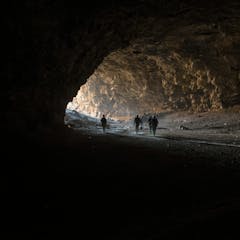
Articles on Archaeology
Displaying 1 - 20 of 499 articles

Corn has its roots in Mexico about 9,000 years ago.

A photo of Lucy’s reconstructed skeleton next to a live four-year-old girl shows how human Lucy was – and how small.

Satellite data shows the amount of food the residents of the tiny Pacific island have grown over time, pointing to a small but stable population.

The way Lucy has been depicted in newspapers, textbooks and museums shows how today’s cultural norms influence perceptions of the past.

Structures aligned with solar events served various purposes: science, farming, religion and even politics.

Archaeologists preserve records of their excavations, but many are never analyzed. Digital archaeology is making these records more accessible and analyzing the data in new ways.

Our research at the site – which was traditionally restricted to women – has also uncovered tools previously only associated with male crafters.

At the heart of the Maya civilisation were sacred sites where ritual sacrifices took place. A new DNA analysis reveals more about this practice and Maya genetic legacy.

Collaborative research by archaeologists, environmental scientists and tribal elders combines science and Indigenous knowledge to tell the story of centuries of life at a glacier’s edge.

The story of the eruption of Mount Vesuvius is no longer one of annihilation; it also includes the people who managed to escape the city.

From neolithic stone balls to Roman cosmetic grinders, here are five finds that have baffled archaeologists.

New evidence from Laili rockshelter on Timor hints at a rapid, large-scale human arrival 44,000 years ago.

The two human species had many similarities but their communication would have been different.

Why build pyramids in the desert? A centuries-old puzzle may be answered by the slow wandering of the Nile.

Understanding how humans came to exert such enormous pressure on Earth’s ecosystems can inform more sustainable ways of living.

Scientists can’t yet tell how soft tissue overlayed bones, so this reconstruction is inevitably based on artistic licence.

The recent discovery of a Roman dodecahedron in Lincolnshire has prompted renewed fascination in these ancient mysterious objects.

The Avars dominated southeastern central Europe for hundreds of years, leaving one of the richest archaeological heritages in Europe. Now scientists are using DNA to reveal details of their societies.

The monument’s ancient connection to the skies may run even deeper than we realised.

New research reveals signs of ancient human habitation in a vast cave beneath the Arabian desert. It may have been used as a waystation by Stone Age herders travelling from one oasis to another.
